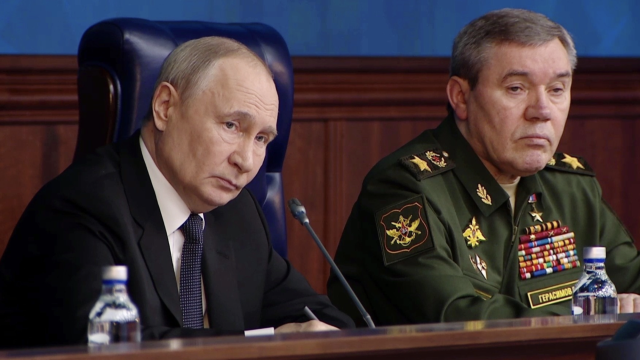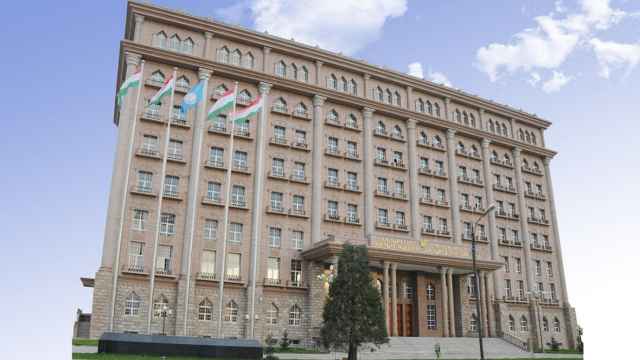| About this blog
|
| Window on Eurasia covers current events in Russia and the nations of the former Soviet Union, with a focus on issues of ethnicity and religion. The issues covered are often not those written about on the front pages of newspapers. Instead, the articles in the Windows series focus on those issues that either have not been much discussed or provide an approach to stories that have been. Frequent topics include civil rights, radicalism, Russian Islam, the Russian Orthodox Church, and events in the North Caucasus, among others.
Author Paul Goble is a longtime specialist on ethnic and religious questions in Eurasia. Most recently, he was director of research and publications at the Azerbaijan Diplomatic Academy. He has served in various capacities in the U.S. State Department, the Central Intelligence Agency and the International Broadcasting Bureau as well as at the Voice of America and Radio Free Europe/Radio Liberty and at the Carnegie Endowment for International Peace. He writes frequently on ethnic and religious issues and has edited five volumes on ethnicity and religion in the former Soviet space. |
VIENNA &mdash Despite the expectations of many in the West, President Dmitry Medvedev "has said nothing about the need to strengthen property rights" because that gives the powers that be the ability to intimidate not only the owners of small and midsized firms but also the oligarchs, according to a leading Russian commentator.
In an essay on the Grani.ru site today, Irina Pavlova points out that speeches by Medvedev and others at the United Russia party permit only a single conclusion: "The present criminal regime finds it easier to hold the private Russian economy in the shadow under the fist of the special services and collect tribute from them just as it does from state enterprises."
Indeed, she says, the comments of the leaders of "the party of the new Russian nomenklatura" show that they understand that "it is easier to administer a criminal society" because an atomized mass "will not resist because all will feel themselves guilty" of something and thus will submit to those with power.
Pavlova takes as her point of departure the comments of Yegor Gaidar, "the father of Russian nomenklatura privatization," to the effect that United Russia could either become harsher or gradually liberalized, depending on how it resolves "the problem of the division of power and property."
The answer to Gaidar's question, the Grani.ru commentator says, was provided by the just-concluded congress in St. Petersburg of United Russia, an organization that she describes as "the party of the new Russian nomenklatura which now has not only power but property as well" which has proclaimed "Russian conservatism" as its "ideology."
"What does this mean?" Pavlova asks rhetorically. First of all, it means that "the current Kremlin regime does not intend to share power with anyone" and that it will, "in the name of Russia," work to preserve the territorial integrity of the country and its traditions as United Russia defines them.
These traditions, of course, include "despotism and the absence of freedom," because for United Russia and its supporters, "the keystone of Russia conservatism is power which acts in its own country like an occupier on a conquered territory, subordinating the people and enserfing it" for the benefit of the powers that be.
"In declaring itself the legal successor of the Soviet Union," Pavlova continues, "the present-day powers that be continue the traditions not only of Russian autocracy but of the dictatorship of the communist nomenklatura," with "all the signs of an occupation power," including forces to defend the regime from the population.
Some observers have been distracted by Medvedev's constant invocation of the need for modernization, she notes, but in fact, his ideas on modernization combine with the ideology of Russian conservatism just as easily as "this ideology was combined [in Soviet times] with the construction of 'socialism.'"
Already in the 1930s, Pavlova points out, some observers in the West understood this. Oswald Spengler, for example, observed that Stalin's modernization of the Soviet Union was about "power, power and still more power." And Medvedev's "modernization" is just the same: It is about "the strengthening of the existing powers that be."
If Medvedev were really serious about modernization in the broader sense, he would have been talking about "the legal strengthening of the rights of private property," as Gaidar noted in his interview, because "a movement in this direction could become a most powerful factor in curing society and in its transformation from a criminal to a normal one."
But "note," Pavlova says, "President-Lawyer Medvedev did not say a word about the need to strengthen the right to private property" because "the current criminal regime" can more easily control and extract tribute from the private part of the economy if the rights of its owners are not protected by law and the legal system.
Consequently, it is becoming clear that Medvedev and United Russia will continue yet another Russian tradition as they promote their version of "Russian conservatism:" a weak legal system that does not stand in the way of the powers that be to do what they like with the population as long as it remains under their control.
A Message from The Moscow Times:
Dear readers,
We are facing unprecedented challenges. Russia's Prosecutor General's Office has designated The Moscow Times as an "undesirable" organization, criminalizing our work and putting our staff at risk of prosecution. This follows our earlier unjust labeling as a "foreign agent."
These actions are direct attempts to silence independent journalism in Russia. The authorities claim our work "discredits the decisions of the Russian leadership." We see things differently: we strive to provide accurate, unbiased reporting on Russia.
We, the journalists of The Moscow Times, refuse to be silenced. But to continue our work, we need your help.
Your support, no matter how small, makes a world of difference. If you can, please support us monthly starting from just $2. It's quick to set up, and every contribution makes a significant impact.
By supporting The Moscow Times, you're defending open, independent journalism in the face of repression. Thank you for standing with us.
Remind me later.






